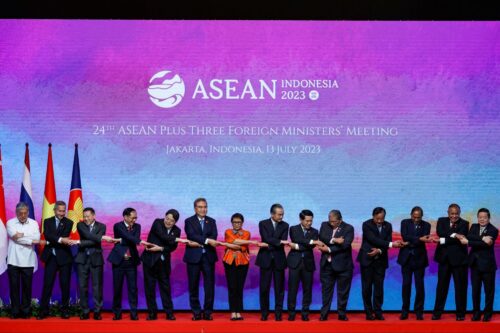The real Vietnamese housewives of central China
With more men than women left behind in China’s countryside, the practice of buying a bride from the Mekong region has spilled over from border provinces into China’s rural heartlands.
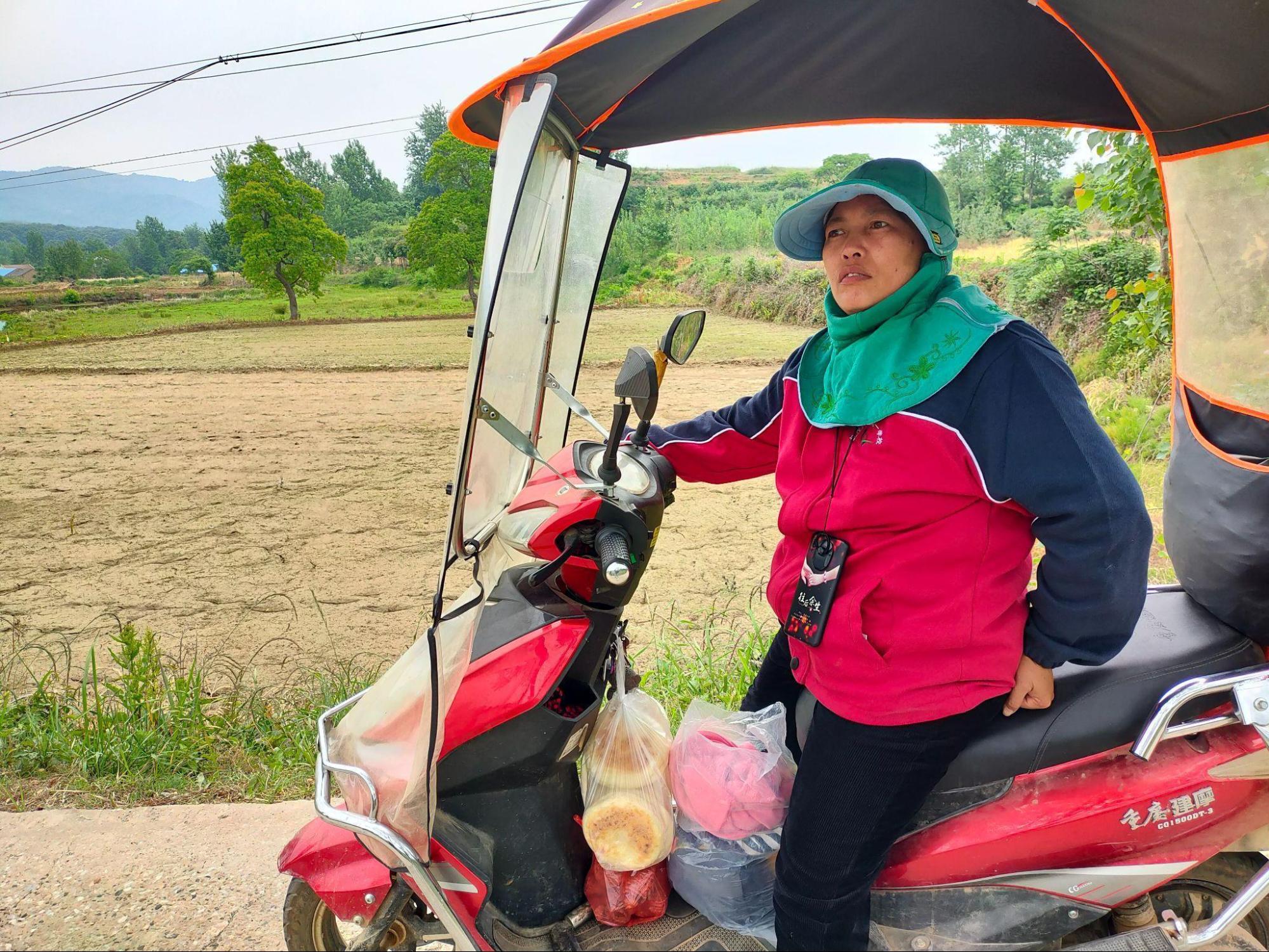
Hong’an is an underdeveloped county in Hubei province at the foot of a mountain range just north of Wuhan. Before 2017, it was listed as an “impoverished county.” Huajiahe, a township of 56,000 people within the county, only has two main streets. Every afternoon, the elderly play cards, housewives gossip in the grocery stores, and motorbikers wait in the sun to pick up passengers from buses parked loosely on the streetside. It is the end of the line.
Yet Hong’an has one particularity: it is home to more than 400 Vietnamese women, the highest number in Hubei, according to 2018 data from the provincial civil affairs department. I was born and raised in Hong’an, and had heard of the presence of Vietnamese brides in my hometown. So I went to take a look for myself.
With China’s skewed gender ratio of more men than women, combined with the trend of educated women staying in big cities, many rural men are left single and unable to find a wife. For some of these “leftover men,” the way out is to marry one from Vietnam or Cambodia, often using an agent to “buy” and transport her into China.
“Some bachelors are impoverished and can’t find local Chinese wives,” said Chen Jiancheng, a villager in Hong’an, “so they seek a foreign bride.”
Transnational marriages with women from the Mekong region are common in China’s southwestern border provinces. Over 40,000 women have come from Myanmar, Vietnam, and Laos to marry into China’s Yunnan province — not including unregistered marriages — according to a 2016 report by Yunnan’s immigration bureau.
Yet in recent years, such marriages have expanded from the borders to landlocked provinces in central China, including Hubei, Jiangxi, Henan, and Anhui. This trend began around 2010, according to a report funded by the United Nations, although the black swan event of COVID cut the number of “imported” Vietnamese wives to nearly zero beginning in 2020.
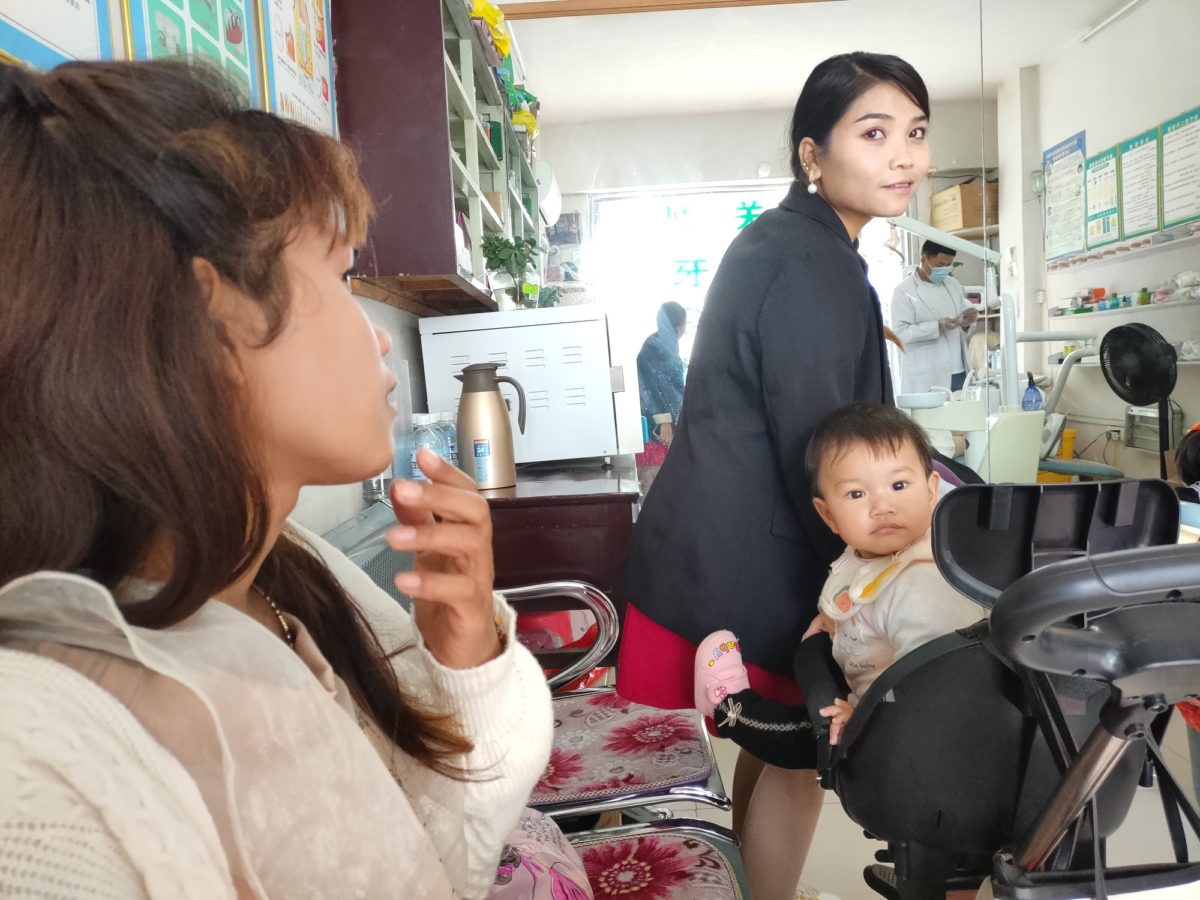
In Huajiahe town, an unassuming woman rides an electric bike past miles of farmland — she is the Vietnamese wife of a local farmer. More than 100 Vietnamese women have married into this town alone, according to residents’ estimates. They have a closed social network, walking miles to gather in each other’s homes, drinking Vietnamese coffee, and cooking with ingredients delivered from Vietnam through Taobao.
According to local villagers, it costs up to 130,000 yuan ($17,900) to bring a wife over from Vietnam, including transportation and paperwork expenses. Agents often pocket a large portion of the fee, leaving a small percentage to the Vietnamese women’s families.
This sum of money represents a lifetime’s savings for a farmer, but is still much cheaper than marrying a local woman, which requires not only a bride price (currently an average of 135,000 yuan), but often also a house and a car.
The price has also gone up recently. One villager told me that a decade ago he spent around 70,000 to 80,000 yuan (between $9,500 and $11,000) to bring over his Vietnamese wife. According to China Judgements Online, the average price to “buy” a foreign wife from the Mekong region increased from less than 4,000 yuan ($550) in 2010 to around 120,000 yuan ($16,500) in 2020.
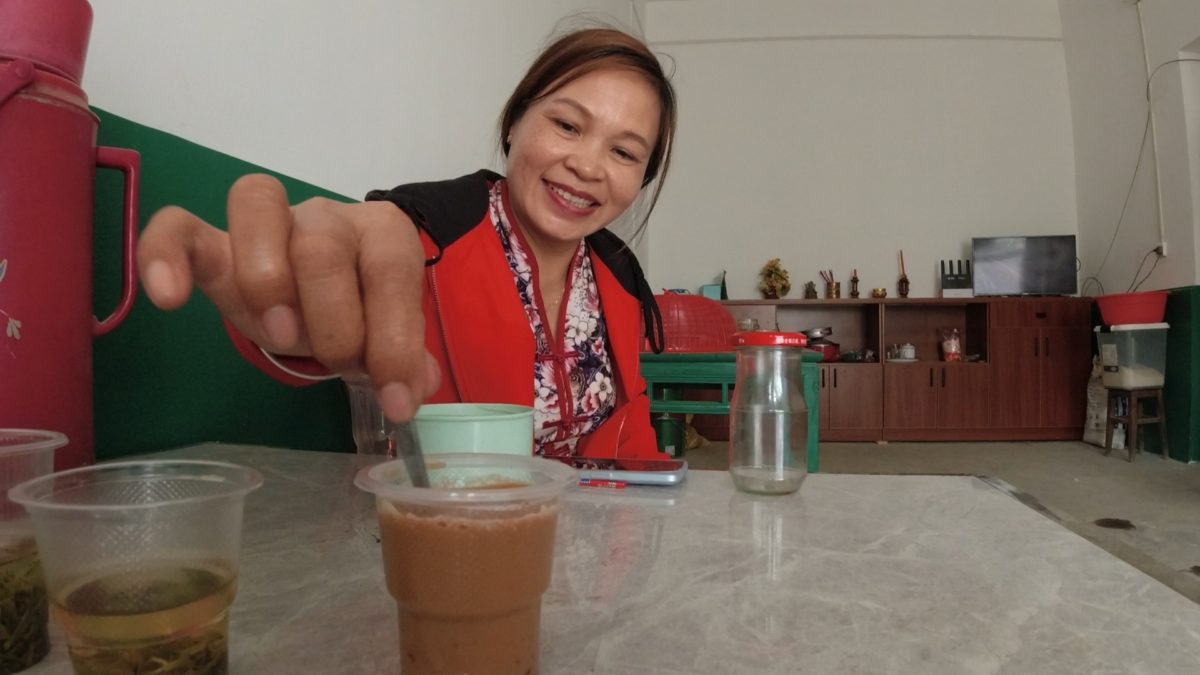
Ā Cuì 阿翠, a 45-year-old Vietnamese wife in Huajiahe, moved here 10 years ago. She told me she feels more attached to her family in Vietnam than her new family in China, even after a decade. She has a daughter from a previous marriage in Vietnam, now 23, who had a baby this year. “I’m a grandmother now,” she said with a delighted smile.
She calls her daughter every week, and uses her daughter and grandchild as her profile photo on WeChat, where she also posts videos of her singing Vietnamese songs.
Ten years after getting remarried, she still hasn’t given birth to another child. Her octogenarian father-in-law complains resignedly: “What can we do about it?”
Cui is detached from her new family in China. Her husband works on a construction site in Wuhan, and spends little time at home. Cui and her parents-in-law cook in separate kitchens, since they have different eating habits: Cui likes light flavors, and feels local dishes are too oily and salty. She speaks very limited Chinese, and can only communicate simply with her parents-in-law. Fitting in is tough.

Li Meizhu, by contrast, is content with her life in China. She is 35 and has two sons, 11 and five years old. She speaks nearly fluent Chinese, so the language barrier is not an issue for her, and gets on well with her husband.
“No matter in Vietnam or here, what matters is whether your husband is a good guy,” she told me. “Even if you married someone rich, you will still want to divorce if he mistreats you.”
Li’s courtship with her husband was more romantic than some other Vietnamese wives. She first met Chen Deping, who is nine years older than her, in 2009, when Chen traveled to Vietnam while she was working in a clothing factory. Li had already learned Chinese for two years, and the two kept chatting online after Chen returned to China. After nearly a year, Li decided to marry him. He paid up to 30,000 yuan ($4,100) as the “bride price,” much lower than the usual amount, as the marriage was also for love.
They held a traditional wedding in Vietnam with local rituals, such as holding hands with the bride’s parents. Then the newlyweds flew to China and held another traditional wedding in Huajiahe.
Later, Li introduced her sister back in Vietnam to her new cousin-in-law in China, and they got married too. The two sisters now live in the same village within Huajiahe township.

Most Vietnamese and Cambodian wives I talked to in Huajiahe agreed that, even though this small town in China isn’t so developed, it still offers a better quality of life than their hometowns can.
Ā Huā 阿花, a Vietnamese woman in her 30s, has nine siblings in her immediate family back in rural Vietnam. Family finances were constrained, and she used to work in a clothing factory before getting married and moving to China.
Hua doesn’t care about still being poor, but she does care about respect. “Here,” she said, “some people think less of you just because you are Vietnamese.”
Then there is the paperwork. It is almost impossible for foreign wives to register as local residents (although one such residency was issued this year), and so they have to renew their passports annually, which costs 500 yuan ($70) every time. If they have been in China for five years (staying for nine months of the year), then they can apply for permanent residence, but the chances of approval are slim. Only around 7,300 foreigners in China were approved for permanent residence between 2004 and 2013, according to The People’s Daily. No Vietnamese wives in Hubei province had been granted permanent residence as of 2018, according to a study by Jin Zheng at Jianghan University.
Vietnamese wives also have to take additional HIV tests and health checks every year, adding hundreds of yuan to the bill. The Chinese government has been concerned over a higher ratio of HIV carriers among foreign wives, especially in border provinces. A 2010 survey found that eight out of every 2,500 Vietnamese wives in Guangxi province were HIV positive, and 0.7 percent of Vietnamese migrant workers — a rate three times higher than that of Chinese workers.
Social welfare is also restricted for foreigners. Ā Liǔ 阿柳, another Vietnamese woman who married into Huajiahe, was widowed several years ago when her husband died from a stroke, leaving her to take care of her two sons by herself. A widowed Chinese mother could usually receive hundreds of yuan in allowances every month as a social benefit, but A Liu, as a Vietnamese, is not eligible.
For others, most of their husbands are not home for the majority of the year. Instead, they are out working in the cities, in factories or on construction sites. In fact, in Huajiahe, hardly any young or middle-aged men can be seen: most villagers are women, children, and the elderly. The settled population of Hong’an county is officially decreasing, with only 510,000 current residents among 640,000 registered residents.
The Vietnamese wives almost all stay in the villages as housewives, occupied with parenting, farming, and housework. Finding a job is a tall order for these women buried in chores, not to mention the language barrier. “It’s difficult to take a job while you have two children at home,” said A Hua, “especially without grandparents or a husband at home to help you.”
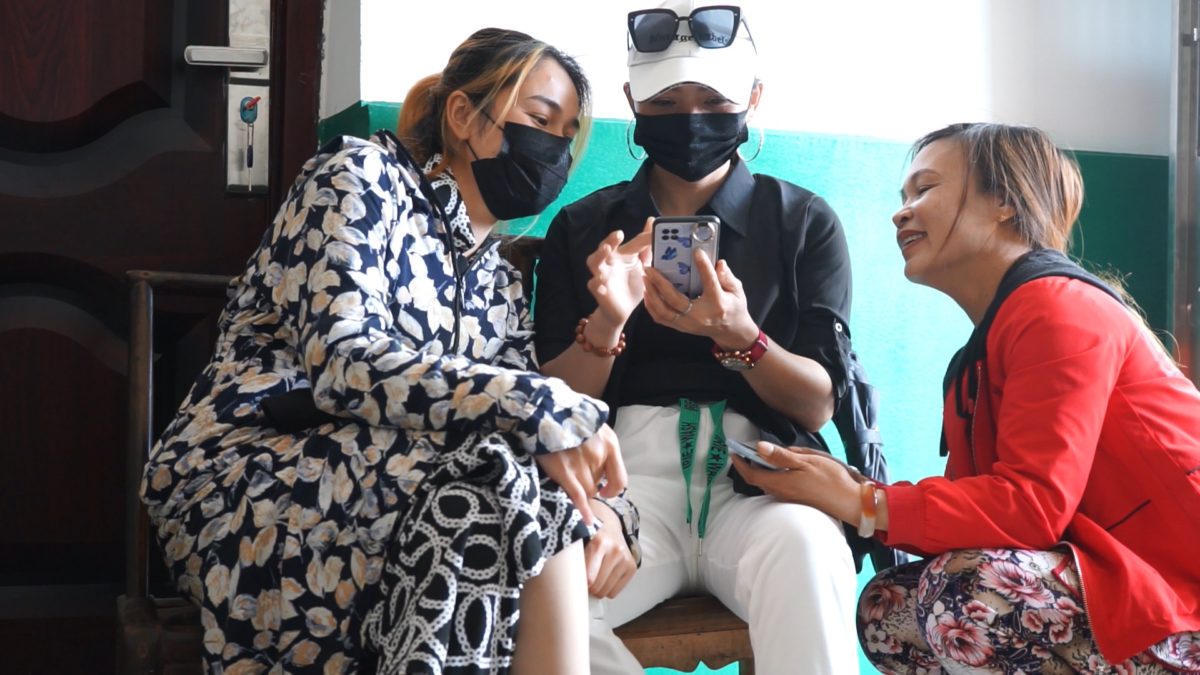
Li Meizhu is one of only two women I talked to who has left the village for work. In May 2022 she found a job in Wuhan assembling air conditioners in a factory. She quit the job days later, explaining, “The night shifts are 12 hours overnight. It’s exhausting.”
After she got married, Li visited her parents in Vietnam once a year. But since the COVID-19 outbreak in 2020, she hasn’t returned to her home country. An airline ticket from China to Vietnam can now cost over 3,000 yuan ($400), and with COVID measures, she would have to go through quarantine if she returned from overseas, at her own expense of around 20,000 yuan ($2,700).
There is a human cost to her separation from her home country, too. Li’s sons only speak Chinese. She tried to teach them Vietnamese, but gave up. “They had a short memory and soon forgot the Vietnamese words,” she told me.
Yet there were other ways to keep their heritage alive. Both her sons’ names contain the character yuè 越 — from the Chinese word for Vietnam, 越南 yuènán. It will help them remember where their mother comes from.
